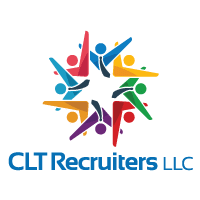How to Research for a Job Interview
Now that you have your resume edited to perfection it is time to take your next step in preparation for your job interview. This requires a bit of research as you get to know the employer and the company’s mission. With a greater understanding of not only what you are applying for but where you are applying to will help you navigate the interview with confidence and efficiency.
First, it is important to understand the skills and values that the company is looking for. Try to see yourself in the eyes of your potential employer. What characteristics are they seeking in an employee? What qualities do you think your interviewer will be looking for? For example, if you are applying to a position within non-profit public health, the company may be looking for a candidate who has strong compassion. Maybe you are applying for a position on a sales team; your future employer will be looking for someone who knows all the right strategies and techniques.
How do you know what qualities you should let shine? Read the job posting very carefully. You will find words that have been specifically chosen which paint a picture of the employee they are looking for. Take a look at the “About” section or anywhere on the website where you can find the mission statement of the company. This is a very carefully written, short piece that is meant to send a direct message to the reader about who the company is and what they are trying to do. Keep that message in the forefront of your mind during your interview; this will help keep you remain guided on the right track. Having a clear understanding of the company’s culture will also help you to reflect the values they will be looking for in future employees, as well. But don’t embellish or pretend. Employers will usually see right through that. It is important to remain true to yourself, but do not forget to embrace your strong and positive qualities.
If you need a little extra guidance, try reaching out to current employees and ask them about their experience and what qualities their employer is looking for. Sometimes going directly to the source is the most efficient way of getting anything done. You might also want to check out websites such as Glassdoor, which will have helpful information and insight from past and present employees. Sometimes you might find helpful tips regarding the hiring and interview process as well.
It is also key to have a somewhat general understanding of the major players at the company. Now, you don’t need to know their life story but it is smart to at least have a general understanding of the foundation the company stands on. Who is the CEO/president and what is their background? Definitely have an idea of who the hiring manager is, or whoever it might be that is interviewing you. If you can learn a little about them this will help you spark a conversation tailored to them; this will also demonstrate your effort and dedication. LinkedIn is a great source as this will showcase their professional background and accomplishments.
Research yourself! Give your name a quick Google search or view your Facebook profile on the “public” setting. Many employers use social media when narrowing down potential employees. Perhaps there are some outdated photos you want to take down or a tweet that won’t look ideal in their eyes. During a job hunt it’s important to tailor your social media presence to be one that is presentable, depending on the position you are applying for.
Are you familiar with the types of services the company provides? More than likely the person interviewing you will ask questions specific to these areas. They may also pose hypothetical scenarios and will ask how you might handle a specific situation. If you have a clear understanding of what kind of service is needed, this will allow you to present yourself clearly and cohesively to your future employer. If the company offers certain products it is important to understand the product itself and communicate how you will benefit the company and product marketing if hired.
Depending on the company, it may be relevant to brief yourself on the financial history of the company. According to Forbes, “While you don’t necessarily want to spout off stock prices or funding history, being able to speak insightfully about where you think the company will go in the future, backed up with facts, is hugely impressive in an interview.” Every bit of information prepared for an interview will help. Just make sure you are keeping conversation relevant and focused to the position.
Doing your research prior to an interview will not only help you answer questions from the interviewer, but will also help you ask questions in return. This will demonstrate your level of interest and comprehension for the position and the company as a whole. More importantly, doing deeper research about the company will give you a better understanding as to whether or not this position is something you truly want. If you are on a serious career path you will want to know specifically what you are looking for within a position. You may ask yourself, how well do you rank in your qualifications and what can you do to further yourself?
Overall, try to get the broadest scope in every facet when doing research before an interview. Have a very clear understanding of the company, where you would stand within it and where the company stands in relation to your city, nation and beyond. This information will only bring your closer to your ultimate goal and a future of success and achievements.
